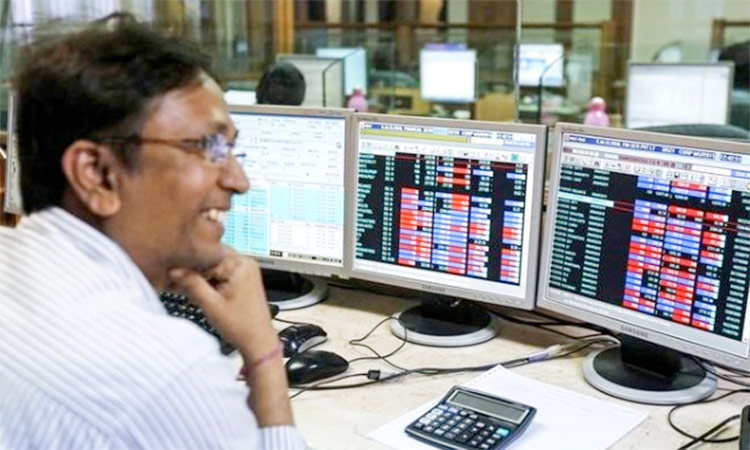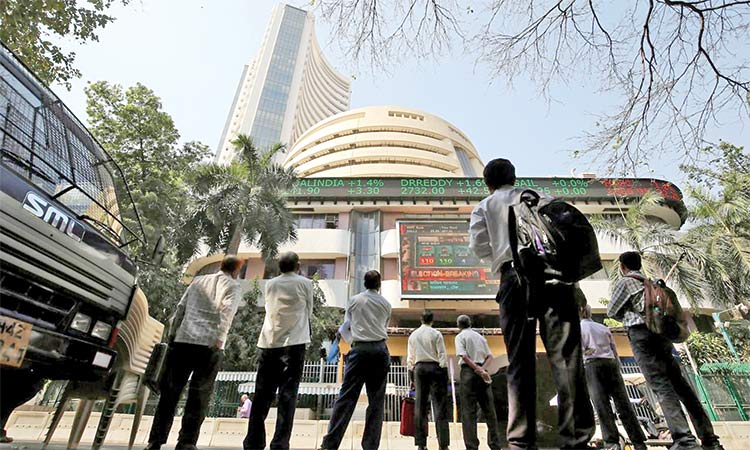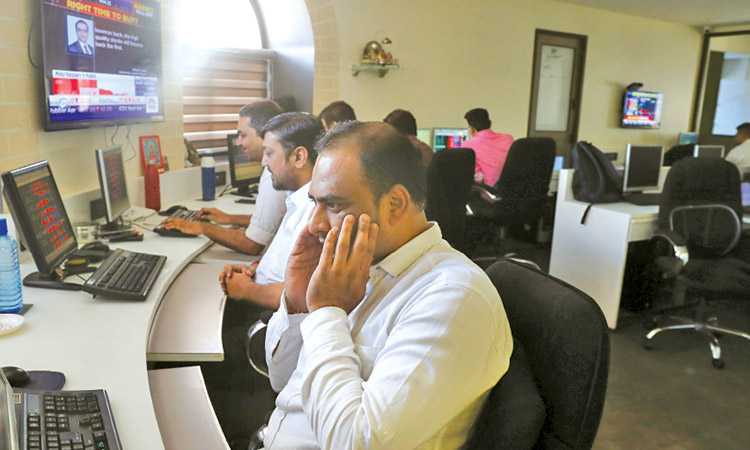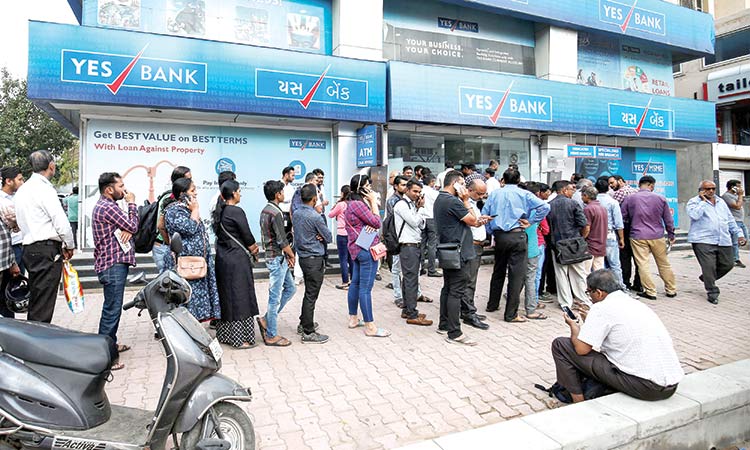India’s 10% GDP by 2025 may come from core digital areas
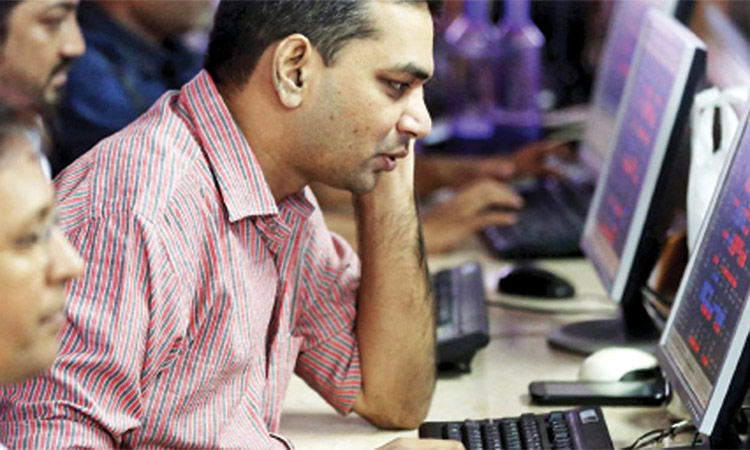
An Indian stock broker reacts while watching the Bombay Stock Exchange. Associated Press
India’s core digital sectors accounted for about $170 billion — or seven per cent of GDP in 2017-18, said the report titled “Digital India: Technology to transform a connected nation”.
Out of this $170 billion, $115 billion came from IT-BPM, $45 billion from digital communications, and $10 billion from electronics manufacturing.
Based on industry revenue, cost structures, and growth trends, McKinsey Global Institute estimates these sectors could contribute between $355 billion and $435 billion, accounting for 8 to 10 per cent of India’s 2025 GDP.
For the study, the researchers analysed 17 mature and emerging economies across 30 dimensions of digital adoption since 2014 and found that India is digitising faster than all but one other country in the study, Indonesia.
India had 560 million Internet subscribers in September 2018, adding that the country has the potential to add about 275 million Internet subscribers by 2023, taking the total number of Internet subscribers in the country to 835 million.
While the public sector has been a strong catalyst for India’s rapid digitization, private sector innovation has helped bring Internet-enabled services to millions of consumers and made online usage more accessible, the research showed.
“For example, Reliance Jio’s strategy of bundling virtually free smartphones with mobile service subscriptions has spurred innovation and competitive pricing. Data costs have plummeted by more than 95 per cent since 2013 and fixed-line download speeds quadrupled between 2014 and 2017,” the report stated.
As a result, mobile data consumption per user grew by 152 per cent annually − more than twice the rates in the United States and China, it added.
Meanwhile, the key equity indices fell sharply on Thursday with the Brent, the global oil benchmark, crossing the $75 a barrel mark for the first time in 2019 and due to weak Chinese markets.
Sentiments also took a hit as the rupee lost nearly 40 paise against the dollar during the day.
Uncertainty due to the ongoing general elections and rising oil prices shot the ‘VIX’ up to 25.53 on Thursday.
VIX or the ‘fear gauge’ - the measure of market’s expectation of volatility - was marginally below the three-year peak of 26.31, indicating poor investment sentiments.
Among the sectoral indices, the PSU Bank Nifty fell the most. Bank stocks came under pressure on derivative expiry day as lesser long positions seemed to be rolled over, analysts noted.
Weakness during Thursday’s trade came on the back of negative global cues.
“Chinese stock market dropped to its lowest in more than three weeks, disappointed by the central bank’s attempts to lower market expectations for more policy easing and concerns over economic recovery prospects,” Deepak Jasani of HDFC Securities added.
The BSE Sensex declined 323.82 points or 0.83 per cent at 38,730.86 and the broader Nifty fell by 84.35 or 0.72 per cent at 11,641.80.
Maruti Suzuki, which announced its Q4 results, fell by 1.73 per cent to RS 6,902.95 apiece on the BSE.
The shares of the country’s largest cement clinker exporter, Ultra Tech Cement, hit an all-time high after healthy Q4, advancing over 5 per cent on the National Stock Exchange.
“Market failed to maintain the opening gains due to a surge in oil prices and concern on a slowdown in Chinese central bank’s stimulus packages. Consolidation was broad-based with PSU banks and metals under-performing,” said Vinod Nair, Head of Research, Geojit Financial Services.
Meanwhile, automobile major Maruti Suzuki will stop selling all diesel fuelled cars from April 1, 2020 as new emission norms kick in from next year.
According to the company’s Chairman R.C. Bhargava, the company will stop selling diesel cars from April 1, 2020 as car prices will rise due to the implementation of Bharat Stage-VI emission norms.
“Given BS-VI (from April 1, 2020) has come and other safety regulations implemented... prices are going up.
“Diesel cars of BS-IV have to be sold and registered before 31st March (2019). We will work on our production schedule in a way that no diesel IV vehicle is left in our stock.
“From April 1, 2020 we will not be selling diesel cars,” he said.
Currently, diesel powered vehicles constitute about 23 per cent of the total domestic sales. The company had developed a new DDiS 225 (1.5L) diesel engine.
Indo-Asian News Service
